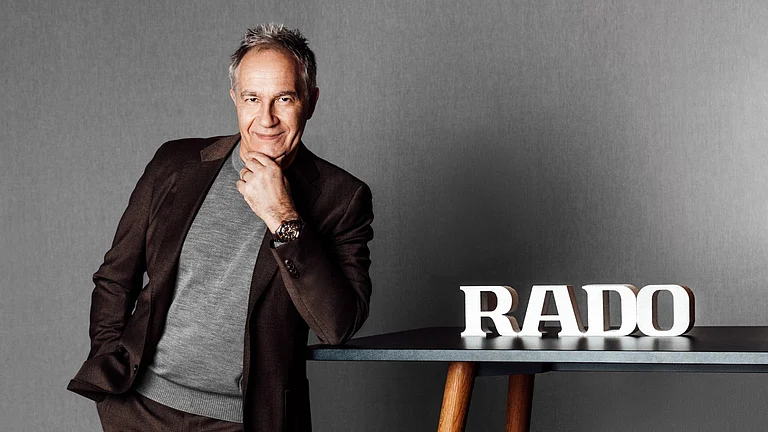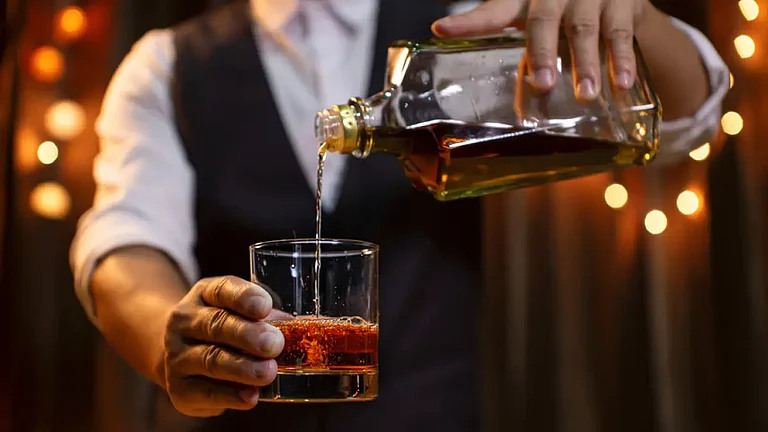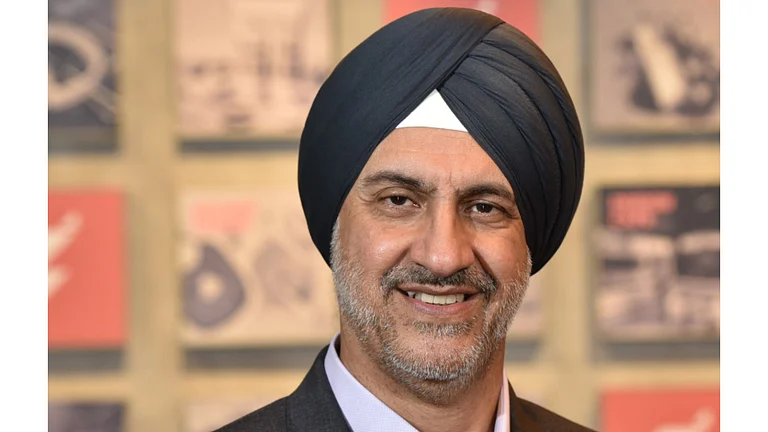
Indian spirit makers have alleged discrimination in several states’ excise policies that favour imported bottled-in-origin (BIO) liquor over domestic brands.
The Confederation of Indian Alcoholic Beverage Companies (CIABC) said Indian brands face exorbitant registration fees and higher excise duties compared to BIO products, hurting competitiveness.
With new free trade agreements lowering customs duty on BIO imports, domestic brands risk becoming less competitive under current state excise regimes.
In Maharashtra, excise duty on IMFL is double that on BIO; BIO sales surged from 5,000 cases/month in 2021 to 42,000 in 2024, while premium IMFL growth slowed.
Indian spirit makers have raised concerns over alleged discriminations by several states, saying their excise polices are biased in favour of imported alcoholic beverages as compared to domestic brands including those with global recognitions.
The Confederation of Indian Alcoholic Beverage Companies (CIABC) has approached several state governments pointing that anomalies in their excise policies put the Indian spirit manufacturers at a disadvantage compared to their foreign counterparts.
The Indian brands face "exorbitantly high brand registration fees" compared to imported BIO (bottled in origin), hampering product entry in a number of states, said CIABC, which is an apex body of Indian alcoholic beverage makers.
The industry body further said that with new free trade agreements coming into effect, the customs duty is going to be reduced further on BIO products, and the prevalent high excise duties by the state government on the Indian premium brands will make the home-grown industry "less competitive".
"Ironically, when Indian premium and luxury brands are winning accolades across the globe, they face taxation hurdles and discrimination in duties in the domestic market. Such discrimination in favour of imported products over comparable Indian products belies the Prime Minister Narendra Modi's call for an 'Atmanirbhar Bharat'," said CIABC.
BIO refers to those whiskies/spirits which are bottled in their country of origin and imported into India with their branding and packaging.
This discrimination in the excise policy is in around dozen states. It's highest in the large alcoholic beverage-consuming states like Maharashtra, Delhi, Kerala, Haryana, besides states like Odisha, Assam, and Madhya Pradesh, among others.
CIABC has been "writing to various state governments flagging various anomalies in their excise policies which put Indian spirits manufacturers at a disadvantage compared to their foreign counterparts, which import various brands", it added.
In Maharashtra, the excise duty imposed on IMFL (India made foreign liquor) players is double than that on BIO.
Until 2021 the Maharashtra government used to charge 300% excise duty on BIO products, which was reduced to half in 2021, whereas IMFL continues to pay 300% excise duty.
"This reduced duty has led to surge in BIO sales (from 5,000 cases per month in 2021 to 42,000 cases per month in 2024). This has given BIO products an unfair edge over domestic brands and has also led to a reduction in state revenue due to a fall in sales of IMFL. High duties on Indian premium brands make them less competitive," said CIABC Director General Anant S Iyer.
After a reduction in duty on BIO, growth in premium IMFL sales has dropped to 6% in FY24 from 24% in FY23.
Giving an example, the association said in Maharashtra, a case (12 bottles of the standard 750ml) of Amrut Fusion (a premium Indian single malt whisky) has to pay ₹6,799 as excise duty, while duty in each case of JW Black Label (blended scotch whisky) is ₹4,785.
Similarly in Delhi, imported brands have to pay a lower fee and taxes to sell their products compared to their IMFL competitors.
"While an Indian producer has to shell out anywhere between ₹8 lakh to ₹25 lakh to register and sell one brand, for BIO products, this fee is just ₹15 lakh for 5 spirit brands (₹3 lakh per brand). Similar is the case for BIO wines versus wines produced in India. Indian wines face higher taxes and registration fee compared to imported brands," CIABC said.
For IMFL, the Delhi government charges ₹25 lakh per brand for all whisky and rum, ₹15 lakh for beer, ₹12 lakh for rum, gin, vodka, ₹8 lakh for brandy, and ₹2 lakh for wine etc.
"New Indian brands, particularly premium, luxury, niche products, face prohibitive costs, thus hampering their entry. There are several premium Indian single malts, which are popular in other states and also overseas, which have stayed away from Delhi due to the exorbitant registration fee," says Iyer.
In Kerala, discrimination between IMFL and BIO brands exists in "excise duty, sales tax, retail margin, cash discounts, and STN charges (special transfer note)," the association alleged.
IMFL products face a heavy tax burden due to higher excise duty, sales tax, cash discounts (both on GTN & STN) and also the retail margin, it said.
"On the other hand, BIO brands enjoy much lower taxation and levies, thus pushing their sales due to the fact that the MRPs of BIO brands are much cheaper than Indian premium brands for the similar supply prices," said CIABC.
































